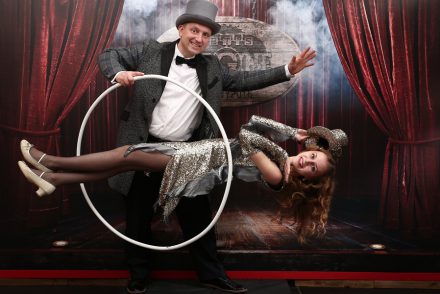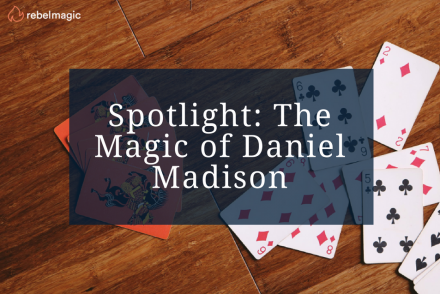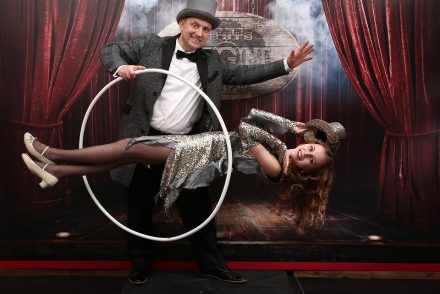Magic: the word evokes a lot of different meanings. To some, they will think of the mentalism and magical illusions of stage and street magic. Others think about the witches and wizards that are the backbone of so many fantasy stories: Gandalf the Grey, Harry Potter, Sabrina the Teenage Witch, Harry Dresden, etc. Still others might think of occult figures such as Anton LeVay, who founded the Satanic church; Aleister Crowley, the noted British mystic; or Gerald Gardner, the founder of modern Wicca. This article will answer the question does magic exist?
Does Magic Exist?
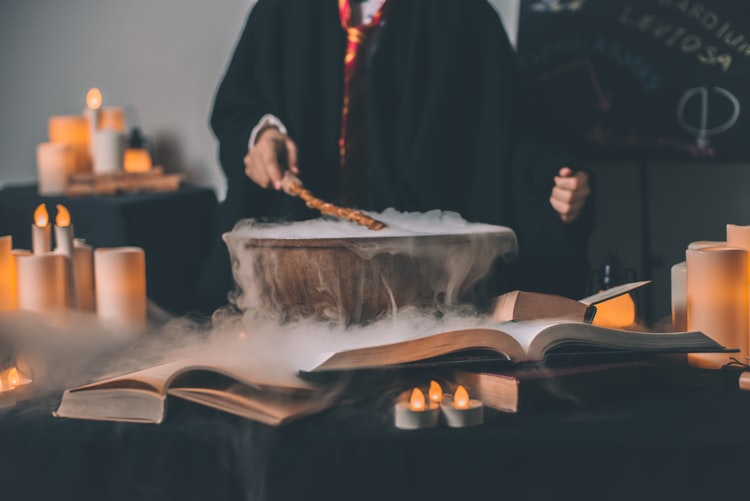
image source: unsplash.com via Artem Maltsev
Answering the question "does magic exist?" requires a look at the different types of things we define as magic. If the magic you are thinking of is that of the street magicians or illusionists, then of course it exists and anyone with a flair for the dramatic, the finger dexterity, and a willingness to practice, practice, practice can perform that type of magic. Unfortunately, the same can't be said for the type of magic often described in fantasy books. You will never be able to conjure a magic missile, for example.
When looking at the magic of the occult, answering the question "does magic exist?" becomes a lot trickier. This type of ritual magic has been used for centuries in a variety of different forms. Almost every single culture in the world has a form of magic that includes rituals, fortune-telling, potions, and spells. Today, there are numerous different groups of practitioners that still practice this form of magic. In order to answer the question of does magic exist, magical like this, it is beneficial to break the question down and look at different aspects of this type of real-world magic.
The Origin of Magic
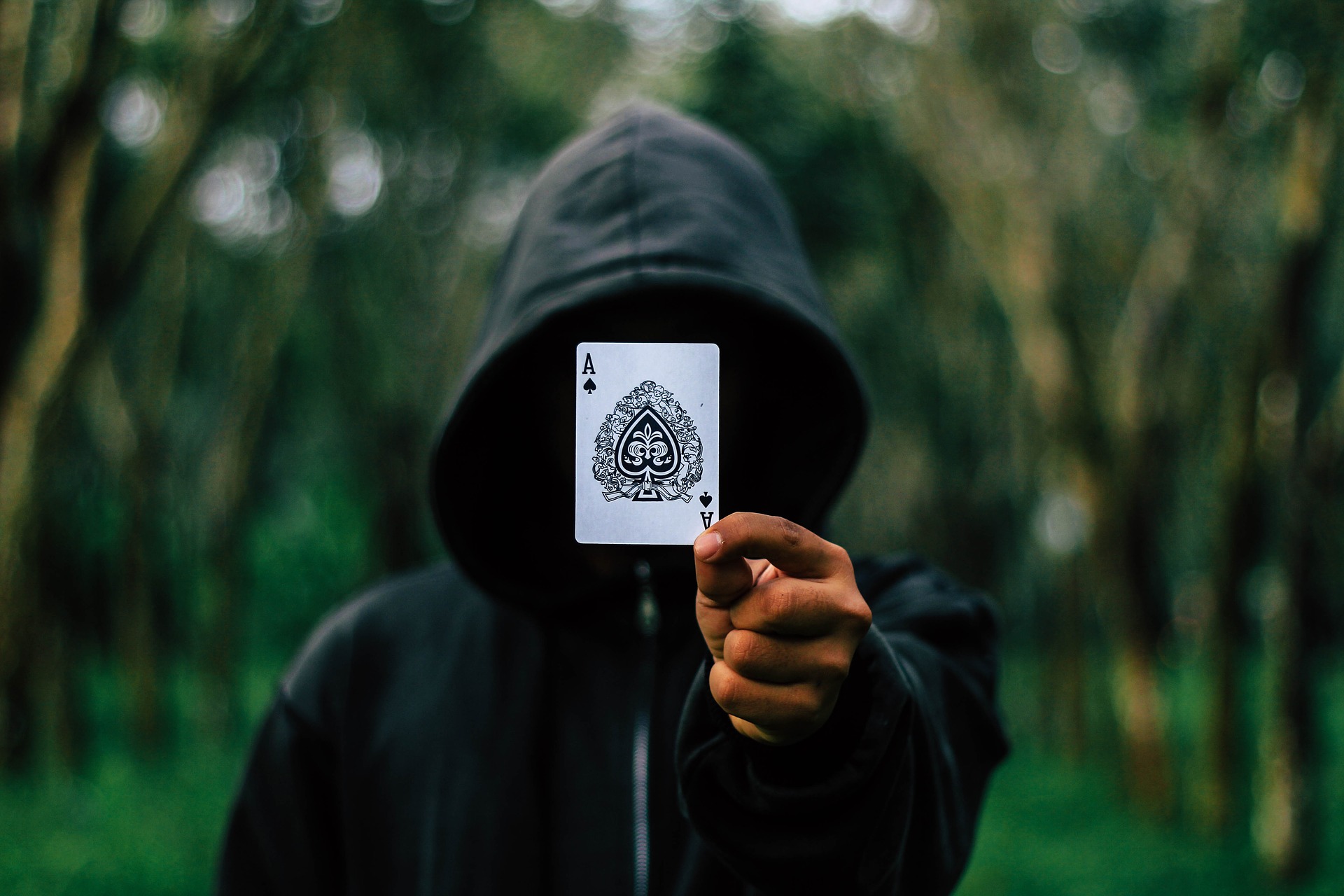
Image by pixabay
The British science fiction author Arthur C Clarke came up with an idiom called Clark's three laws. The third of these laws is the most important when looking at the question "does magic exist?" It states that any sufficiently advanced technology is indistinguishable from magic. Take electricity, for example. We live in a time when electricity is commonplace. If you want to turn the light on in your room, you flick a switch and the light comes on. Pretend for a moment that you lived instead in the 1500s. If someone showed you the electric light going on with just the flick of a switch, you would assume that it was magic.
Clark's third law does not apply just to technology, but also to scientific understanding. The ancient peoples looked at the natural world and did not understand the mechanisms that controlled it according to scientific laws. When the sun disappeared in a solar eclipse, these people did not understand that this was due to the moon blocking the sun's rays from the earth, so they gave it a supernatural explanation.
You can see this same phenomenon today when looking at the pantheon of gods worshipped by different ancient religions. Look, for example, to Zeus who wields his lightning bolt, or Hephaestus whose divine smithy resides in volcanoes.
The magic practiced by the shamans and wise women of these ancient societies often came from a mystical explanation of natural phenomenons. Folk magic relating to herbal remedies for different ailments often came from medicinal compounds within those herbs themselves. If the shaman made their magical potion for an illness and it included a medicinal herb, the condition of the person who drank it might improve; but the ancient people would likely have given the credit to the shaman's magical potion.
Looking at this possible origin of magic, the answer to the question "does magic exist?" is likely a no: but there is more to look at first.
The Placebo Effect and the Perception of Patterns
If magic was only the result of ancient people attributing mystical causes for effects with scientific explanations than why do so many people believe in it now? Two possible explanations are the placebo effect and human beings perception of patterns. These will go far in helping to answer the question of does magic exist.
The Placebo Effect
The placebo effect is generally discussed from a research perspective involved in medical research. When scientists are researching new treatments and drugs, they perform double-blind studies of these treatments and drugs. These studies involve two groups of subjects. One group gets the treatment for the drug while the other group gets a placebo. The researchers study the effects the drug has on the group that received it but often find that some members of the control group who did not receive the drug still get better.
The exact mechanism of the placebo effect is unknown, and it might even be due to some unknown mental power we have to cure ourselves when we believe strongly enough. When applied to magical spells and rituals, the placebo effect might bring about the desired changes. For example, say that you performed a ritual to bring your one true love to you. After you've performed it, the knowledge that you cast the spell might make you more outgoing, allowing you to find your true love.
Patterns and Coincidences
Human beings are pattern-seeking animals. This is one of the ways that we make sense of the world: we look for patterns and find them sometimes even in chaos. The same can be said for coincidences which often arise out of randomness when our minds are focused on a specific fact. Often times, people have attributed patterns and coincidences to magic when it was more likely just random chance.
In his famous Hitchhikers Guide to the Galaxy books, Douglas Adams revealed that the answer to life, the universe, and everything is the number 42. After reading his books, many of his friends see that number in a lot of places in the real world. While this could be evidence that the number 42 significance, it is more likely that the number 42 is in those peoples' minds so that they are more conscious of seeing that number.
Some of the "magical" methods of fortune-telling use peoples' innate desire to see patterns and coincidences to get them to believe in the power of the method. Take tarot cards for an example: a knowledgeable reader of tarot cards gives a generalized reading of the cards, allowing the person the reading is about to apply those generalizations to their own life. Is this magic or is this just coincidence and pattern? When it comes to coincidences, patterns, and answering the question "does magic exist," we honestly don't know.
Modern Magical Metaphysics
In the 21st century, magic has gone beyond its ancients roots. One of the more interesting modern magical practitioners are chaos magicians who view magic as quantum metaphysics. Just as a quantum physicist looks at particle waves and probability, the practitioner of chaos magic looks at magic as a way to load the probabilistic dice, as it were.
This is an interesting way to perceive magic, and on some levels, it might provide an overarching theory that can answer the question of does magic exist with at least a "maybe." Magical spells and rituals to a practitioner of chaos magic are a metaphysical process to improve the odds that something happens.
This metaphysical boost to the chances of probability does not exist in a vacuum. Instead, it uses already existing probabilities, only goosing them slightly in the favor of the practitioner who performs the ritual or spell.
An Example
Take, for example, the spell discussed earlier to bring your true love into your life. If you perform such a spell and then do nothing but sit on your couch munching on snack foods, the spell will probably fail. Your chances of finding your true love while snacking on your couch are almost none. Even if the spell or ritual you performed doubled your odds of finding true love, double almost nothing still gives you little chance.
Some magicians who follow chaos magic principles also worry that if you do not give the magic a way to help you, it might help in unexpected and even unwanted ways. Many practitioners perform spells and rituals related to wealth. As with finding true love, wealth rarely finds you while you're vegging out on the couch.
If you perform a wealth spell without giving the magic and output, maybe the magic will bring you that wealth in the form of an inheritance after your favorite great aunt passes away; not the way most people want to get their wealth.
The avenue chaos magic needs to work its metaphysical magic can bring about the desired effect without any magic at all. If you get off your couch and get yourself out there, you're more likely to find someone, even without magic. Again, human beings' desire to find patterns in coincidences might push us into seeing such coincidences as magic.
So Bottom Line: Does Magic Exist?
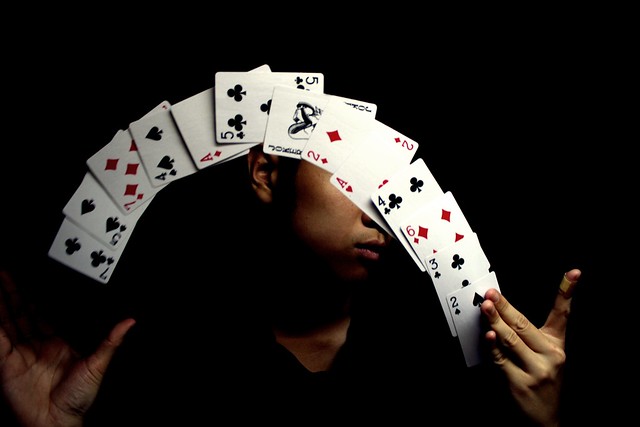
Image by flickr
Unfortunately, "maybe" is the best answer to the question "does magic exist" that we can credibly give. We can't prove that magic does exist, but at the same time there is so much we don't know about the universe and how it works that we can't say magic does not exist, either. When it comes down to it, if the belief in magic improves your life, then know that magic exists; at least insofar that it helps you and makes your life better.

